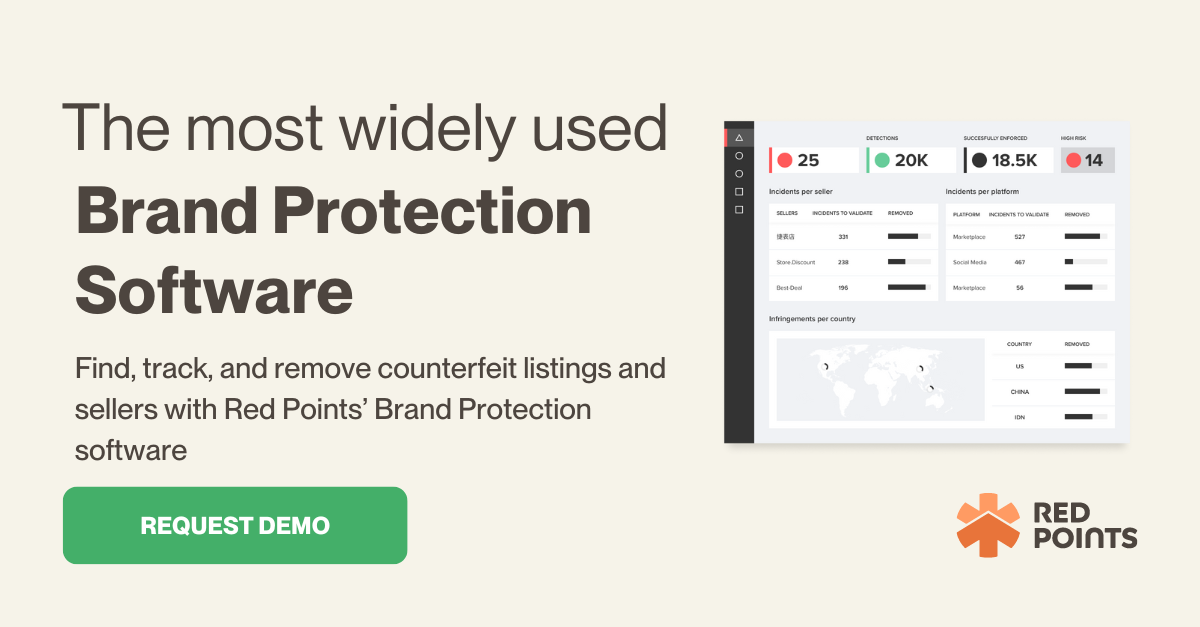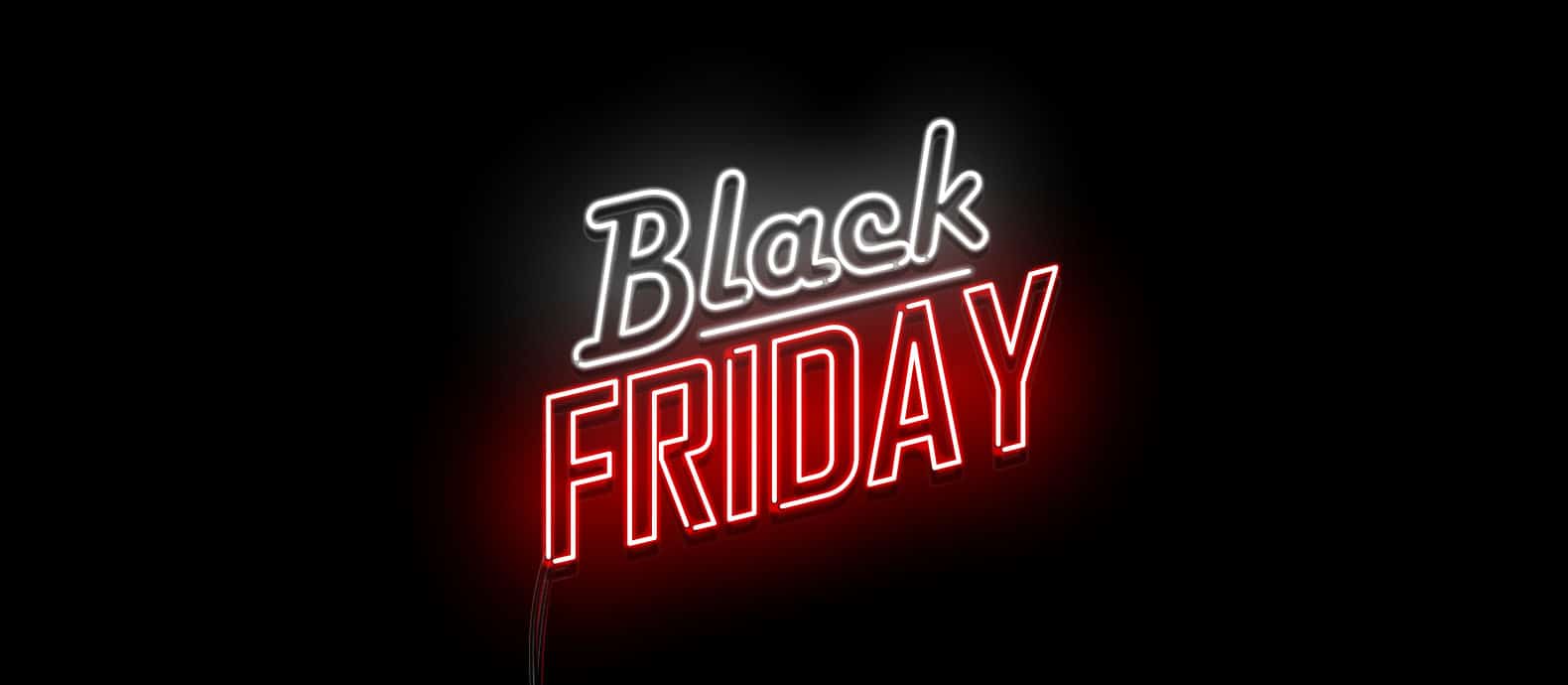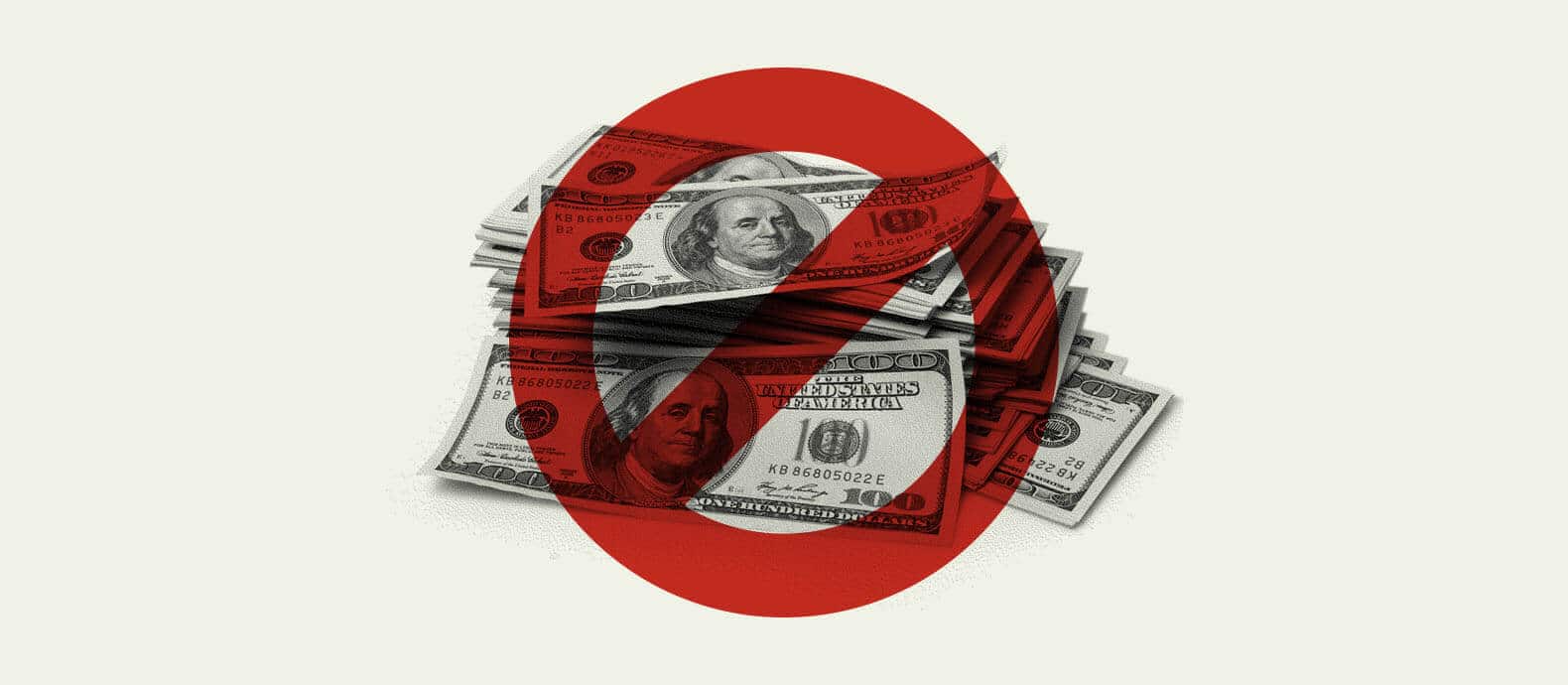Black Friday is one of the biggest sales events of the year, with last year’s online sales figures coming in at a whopping $9 billion in the U.S. alone. It’s a huge opportunity for brands to reach their goals, dramatically boost their profits, and spread brand awareness. It’s also an opportunity for cybercriminals to sell counterfeit products, steal your custom through phishing methods, and, ultimately, damage your brand reputation.
Global cybersecurity company Cheq estimated that retailers lost $1.2 billion during last year’s Black Friday due to financial fraud, skewed data, and lost revenue. All types of digital fraud skyrocket during the intensified shopping period that takes place between Black Friday and Christmas, and online tricksters are becoming more sophisticated every year. In this article, you will find out:
- How online scams are affecting brands over the Black Friday holiday period
- 7 Common scams that ecommerce companies need to be aware of
- How to protect your brand and your customers from Black Friday scams
The impact of Black Friday online scams on brands
Scammers go where the money is, and there’s no end of money floating across the internet during Black Friday and beyond. From phishing emails and websites, to fake social media profiles and apps, cybercriminals use every trick in the book to scam consumers and businesses alike.
While scams are often thought of in terms of how they affect consumers, the effect on businesses can be catastrophic. Scammers target everyone from small and medium-sized businesses, to large enterprises and mid-market companies.
Similarly attractive targets include any business with a large internet presence. Check Point Research found that the companies most commonly used in phishing attacks were DHL, Microsoft, Whatsapp, and Google.
Cybercriminals know that cybersecurity tends to take a backseat in small- to medium-sized businesses (SMBs), making them a vulnerable target.
So why should businesses worry about Black Friday scams?
Digital revenue—There are infinite ways your bottom line can be affected by a Black Friday scam. Here are some of them:
- Copycat businesses and counterfeits: Every sale a fraudster makes when impersonating your brand or selling counterfeit versions of your products, is a sale – and a repeat customer – lost from your business.
- Cyber attacks: These are rife around the intensified period of shopping that begins with Black Friday. For example, a ransomware attack involves a cybercriminal enacting a data breach on your business, and holding it ransom for a large fee.
- Disruption: With disrupted day-to-day activities, you will also be forking out large sums of money to make sure everything goes back to normal as soon as possible.
- Repairing brand reputation: A brand reputation that has suffered a blow not only leads to lost customers, but requires a large injection of money to repair the damage.
- Resources: If you’re leaving your brand open to copycats, you will be spending a lot of time and money tracking them down and sending out DMCA takedown notices. This is why it’s always better to have automated software that does the job for you.
Customer loyalty—Black Friday competition is tough. Every online brand is vying for the spotlight by promoting unmissable deals and creating the best customer experience possible. On the other side, customers save money and wait patiently for Black Friday bargains. If, on the anticipated day, they have a bad experience – even if it was with a fraudster impersonating your brand, or they got landed with a counterfeit item – they are unlikely to come back for more, and will simply switch to another competitor.
Reputation—Your brand reputation is one of the most valuable assets you have. Time, effort and money goes into creating and maintaining it. So when a cyber attack takes hold of your business, customers are sold counterfeit goods, or share their bank details with a fake website, your brand reputation takes a serious hit. In fact, according to a Forbes report, a data breach is one of the biggest threats to a brand’s reputation.
Particularly in the world of social media, bad customer reviews can go viral, at which point, the damage to both your brand image and bottom line is irreversible. Sometimes, the financial hit is even more direct. Comparitech’s report revealed that the share prices of companies compromised by data breaches fell by 3.5% on average.
Intellectual property (IP) infringement—To convincingly copy your website or counterfeit your products, a fraudster has to use your trademark and copyrighted material. Product designs, logos, and content are all examples of IP. These “intangible” assets constitute 90% of the value of S&P 500 firms, according to this report by Ocean Tomo. It’s therefore paramount that brands do their utmost to protect their IP.
Partner networks—The parallel growth of gray markets during Black Friday and beyond can lead to lowered brand reputation. The gray market refers to the unauthorized – though not illegal – distribution of products. Leftover stock may be sold to partners who then sell the product at rock-bottom prices, causing customers to wonder what’s wrong with it. They may also be sold with mismatching components. This not only damages the product’s and brand’s reputation, but causes distrust among distributors.

Common Black Friday scams
Phishing websites
According to the Federal Bureau of Investigation, phishing was the most common type of cybercrime in 2020. Last year, Mimecast scanned the internet for the two weeks leading up to Black Friday, and detected almost 14,000 suspicious internet domains that spoofed 20 major retail brands.
Phishing websites are a common Black Friday scam, and they involve fraudsters creating fake websites and often posing as reputable brands. Cybercriminals are becoming more sophisticated, and some phishing websites are incredibly hard to spot. They then harvest private details from unsuspecting customers, take their money, and – to add insult to injury – the product never shows up.
Phishing emails
Ever had the “missed delivery” email or text from Royal Mail, Hermes, or DHL? This is a hugely common phishing technique, and cybercriminals step up their game during the holiday period when consumers all over the world are excitedly awaiting their package in the post.
Other common scam emails may offer special deals if they click on the link, or ask users to renew their membership, and so on. Sometimes the links may be infected with malware; or perhaps the link redirects the user to a sham site.
Fake apps
More advanced cybercriminals are capable of creating entire apps that harvest customer data, sell non-existent or fake products, generate revenue from advertisements, or execute ransomware attacks. RiskIQ scanned the web and found that 5.5% of the 4,324 Black Friday-related apps are malicious or unsafe.
Fake social media profiles
All a scammer has to do to impersonate a brand on social media is copy across their hashtags, logos, and content. Social media is becoming an increasingly popular way for scammers to obtain sensitive customer information or data, or sell counterfeit products. Often fake brand pages will use aggressive advertising campaigns targeting brand consumers to redirect them to a fake website where the fraudulent transaction takes place.
Gray market distribution
Once a product falls out of a brand’s authorized network, they no longer have control. This is a likely occurrence during Black Friday, when brands will be using all kinds of channels to market and sell their products. When a product falls into the hands of unauthorized resellers, however, they may not be properly displayed, packaged, handled, or shipped, and defective product callbacks will be virtually impossible.
Counterfeit products
The number of counterfeit products catapults every Black Friday. In 2019, 25% of people bought a fake during Black Friday, according to research conducted by The Anti-Counterfeiting Group. Counterfeit products wreak havoc on businesses, causing loss of sales, reputational damage, loss of trust between business partners, and resources spent fighting the fakes. This problem is particularly rampant in the luxury and fashion markets.
Cyberattacks
Many brands depend on Black Friday sales for their yearly revenue goals. With so much money floating around, and millions of people making transactions online, the day carries a heightened cybersecurity risk. Cybercriminals use malware to harm company and customer computer systems, steal, delete, or encrypt data, as well as track user activity. Malware increased by 358% between 2019 and 2020, so it’s a definite risk worth worrying about. Ransomware is another cyberattack that could force businesses out of significant sums of money.
How to protect your brand from online scams during this Black Friday
Consumer education
It’s important to educate your customers about what you won’t ask for over social media channels and email. For example, banks will often tell customers that they will never ask for certain information over email.
There are some telltale signs customers should be aware of when it comes to identifying copycat websites, phishing emails, and fake social media accounts, such as misspelled domain addresses, a sense of urgency, and unverified accounts. In terms of gray market goods, list your authorized distributors on your website so that customers know where to go if they suspect a deal is too good to be true.
Reliable cybersecurity
Businesses need to ensure they have every angle covered from a cybersecurity perspective. Having a reliable antivirus/anti-malware solution is vital, as well as making sure to stay on top of software updates. It’s also a good idea – particularly for ecommerce brands – to implement bot detection and mitigation solutions. Finally, automated software that detects and takes down trademark and copyright infringements will eradicate unscrupulous copycat apps, websites, and social media accounts.
Copyright, trademark, and patents
The importance of patenting your work and registering your copyright and trademarks cannot be emphasized enough. Protecting your intellectual property (IP) will help deter fraudsters from creating counterfeit products, fake websites, and lookalike social media profiles. By actively protecting and registering your rights, you gain legal leverage over unscrupulous copycats. That not only gives you a clear advantage in the law courts, but it makes copying your content and products significantly less appealing to bad actors.
Report infringements (on your own)
All copyright, trademark, and patent infringements should be reported and taken down as soon as possible. There are various ways this can be done. Most commonly, you can begin the takedown process via a DMCA takedown request or a cease and desist letter. Every platform will have their own way of removing infringements. Here are some of them:
- How to report a fake business website
- How to report a trademark infringement on Shopify
- How to report and remove unauthorized sellers and resellers on Amazon
- How to report a fake online shopping site
- How to report a fake ad on Youtube
- How to report an app on Google Play for intellectual property violation
- How to report fake Google ads that pretend to be your brand
- How to report an impersonation account on Instagram
- How to report a copyright infringement to Google
- How to report fake accounts on TikTok
- How to report a Twitter account for impersonation
Automated software (for recurring infringements)
One of the most effective ways at mitigating Black Friday scams is through automated software that detects and removes counterfeit listings and impersonations. Red Points offers both solutions. Our Brand Protection Software scans the internet for counterfeit listings of your product 24/7, reviews thousands of infringements, reveals who the seller is, and automatically requests takedowns.
Red Points’ Impersonation Removal Software scans the web for copyright and trademark infringements in the form of copycat websites, fake apps, and lookalike social media profiles. Using image recognition, Red Points filters through potential infringements and automatically takes down any bad actors.
What’s next
Black Friday is one of the world’s biggest shopping events of the year, with last year’s sales grossing $9 billion in the U.S. alone. Big ecommerce opportunities for businesses and consumers, however, come with big cybersecurity risks. Fake websites, apps, social media accounts, products, and emails run rife during the holiday season, and pose as much of a risk to businesses as to consumers – if not more.
A customer buying a counterfeit product from an illegitimate site isn’t just one sale lost from a business. It’s the beginning of a bad reputation – and that will lead to a loss in custom, and a hit to your bottom line.
There are ways businesses can protect themselves from the cyber-chaos of Black Friday. Registering their copyright, educating their consumers, and ensuring they have reliable distributors, are some of the defense mechanisms businesses can take. Most effective, is to install Red Points’ automated software that will protect your digital revenue during the holidays.







